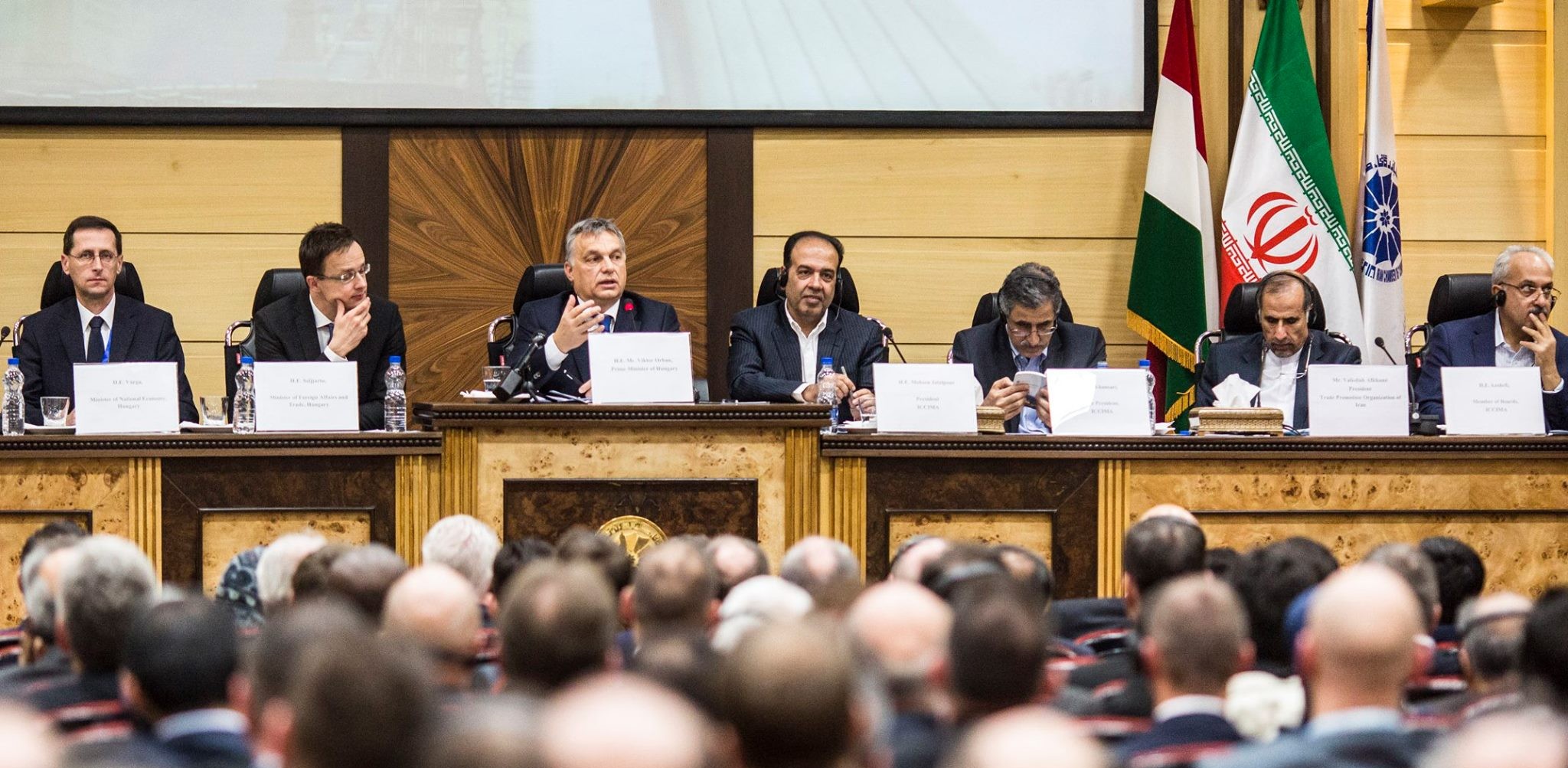
Please allow me to extend my warmest greetings to you all. I would like to take this opportunity here, before the wider public, to thank our hosts the Islamic Republic of Iran and Your Excellency in person for inviting us here. We have had a particularly stimulating and successful series of talks. While I qualify as something of a veteran in European politics, I have just concluded one of the most exhilarating negotiations of my life. Before the talks, we set a considerable goal for ourselves. We came here with the intention of terminating an unnatural state of affairs. The state of affairs in which Iran was excluded from the mainstream of the global economy and world politics – and which meant that we Hungarians had no relations with the country – was an unnatural one. I wish to congratulate Your Excellency and your country on having survived the period of sanctions, and Hungary is pleased to see that Iran is returning to the mainstream of world politics and the world economy.
For us Hungarians, being here in Tehran has been a very special experience. We are standing at the centre of a great civilisation. You may not be aware of this, but it is very important for us Hungarians that the first written records of the history of the Hungarian people are from Persian and Arabic sources, and these are highly valuable for us. I would like to underline the fact that we came here in the name of the culture of respect. Hungary stands on the foundations of the politics of national sovereignty, and we are certain that without Iran the highly complex affairs of this region cannot be resolved, and the region cannot be stabilised. A new era in relations between the two countries is beginning. His Excellency has already outlined the economic aspects of our agreements, and therefore I will not repeat these. I would merely like to highlight one point here, with special regard to the fact that I am no longer a young man and should therefore also think now about the future. I am certain that what we, our two countries, have accomplished today will only be lasting if it is carried on by future generations. I would therefore like to point out here that Hungary is committed to establishing personal, friendly relations between young Iranians and Hungarians, and to ensuring that these relations rest on mutual friendship and respect. At present 1,116 Iranian students are studying in Hungary: they will be the key players in future Iranian-Hungarian relations. I have suggested to the Government of Iran that we prize, extend, enlarge and intensify this cooperation.
I wish to thank our host for receiving our amicable approach with gestures of friendship.
